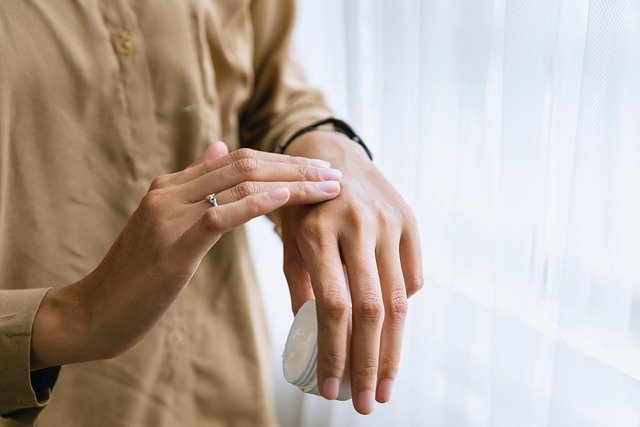3 Morning Habits Doctors Say May Be Speeding Up Aging—and How to Adjust Them for Better Health
Did you know some everyday morning habits could be quietly speeding up signs of aging? Doctors have identified three common routines—like skipping breakfast or forgetting sunscreen—that may impact your skin, energy, and long-term wellness. This guide breaks down what these habits do to your body and offers expert-backed ways to support a healthier, more youthful routine. Explore how small changes can make a meaningful difference over time.

What is the impact of skipping breakfast on aging?
Skipping breakfast is a habit that many people fall into, especially when rushing to start their day. However, this seemingly innocent practice can have significant implications for our aging process. When we skip breakfast, we deprive our bodies of essential nutrients and energy needed to kickstart our metabolism. This can lead to increased stress on the body, potentially accelerating the aging process.
To adjust this habit, try incorporating a balanced breakfast into your morning routine. Focus on nutrient-dense foods that provide a mix of protein, healthy fats, and complex carbohydrates. Options like Greek yogurt with berries and nuts, or whole-grain toast with avocado and eggs can provide sustained energy and support overall health. By nourishing your body first thing in the morning, you’re setting a foundation for better cellular function and potentially slowing down the aging process.
How does morning dehydration contribute to premature aging?
Many people reach for coffee as their first beverage of the day, overlooking the importance of hydration. Dehydration is one of the habits that age you faster, affecting skin elasticity and overall bodily functions. When we’re dehydrated, our skin can appear more wrinkled and less plump, contributing to a prematurely aged appearance.
To combat this, make it a habit to drink a glass of water as soon as you wake up. This simple act can help rehydrate your body after hours of sleep and jumpstart your metabolism. Throughout the day, aim to drink water regularly. You can also incorporate hydrating foods like watermelon, cucumber, and oranges into your breakfast to boost your fluid intake. Proper hydration supports skin health, aids in toxin removal, and helps maintain overall bodily functions, potentially slowing down the aging process.
Why is neglecting sun protection in the morning a concern for aging?
One of the most significant factors in premature aging is sun exposure, yet many people forget to apply sunscreen as part of their morning routine. UV rays can cause damage to the skin even on cloudy days or when you’re indoors near windows. This cumulative damage leads to wrinkles, age spots, and can increase the risk of skin cancer.
To adjust this habit, make applying a broad-spectrum sunscreen with at least SPF 30 a non-negotiable part of your morning skincare routine. Apply it to all exposed areas of skin, including your face, neck, and hands. For added protection, consider wearing UV-protective clothing and accessories like wide-brimmed hats when spending time outdoors. By shielding your skin from harmful UV rays, you’re taking a proactive step in preventing premature aging and maintaining healthier skin over time.
What role does morning stress play in accelerating aging?
Starting the day in a rush or with high levels of stress can have a significant impact on your body’s aging process. Chronic stress leads to increased cortisol production, which can break down collagen in the skin, leading to wrinkles and sagging. Additionally, stress can affect sleep quality, digestion, and overall health, all of which contribute to how quickly we age.
To mitigate morning stress, consider incorporating relaxation techniques into your routine. This could include meditation, deep breathing exercises, or gentle stretching. Planning your morning the night before can also help reduce rushed feelings. By starting your day in a calm, centered state, you’re setting yourself up for better stress management throughout the day, potentially slowing down the aging process.
How can morning exercise habits influence the aging process?
Incorporating physical activity into your morning routine can have profound anti-aging effects. Regular exercise improves circulation, boosts collagen production, and enhances overall cellular health. It also helps manage stress, improves sleep quality, and supports metabolic function - all key factors in maintaining a youthful appearance and vitality.
Start small by adding a 10-15 minute walk or yoga session to your morning routine. As you build the habit, you can increase the duration and intensity of your workouts. The key is consistency. Regular morning exercise not only helps combat the physical signs of aging but also improves mental clarity and energy levels, setting a positive tone for the rest of your day.
What are some effective anti-aging morning habits to adopt?
Developing a morning routine that supports anti-aging efforts can make a significant difference in your overall health and appearance over time. Here are some effective habits to consider incorporating:
-
Gentle facial massage: Spend a few minutes massaging your face to improve circulation and reduce puffiness.
-
Antioxidant-rich breakfast: Include foods high in antioxidants like berries, leafy greens, and nuts to combat free radical damage.
-
Cold water splash: Finish your morning shower with a cold water splash to boost circulation and tighten pores.
-
Mindful skincare routine: Use products with ingredients like vitamin C, retinol, and hyaluronic acid to support skin health.
-
Blue light protection: If you use devices in the morning, consider blue light protection to prevent premature skin aging.
By adopting these habits and adjusting the ones that may be speeding up aging, you can create a morning routine that supports your anti-aging goals. Remember, consistency is key, and small changes can lead to significant improvements over time. Always consult with healthcare professionals before making major changes to your diet or exercise routines, especially if you have existing health conditions.
This article is for informational purposes only and should not be considered medical advice. Please consult a qualified healthcare professional for personalized guidance and treatment.




